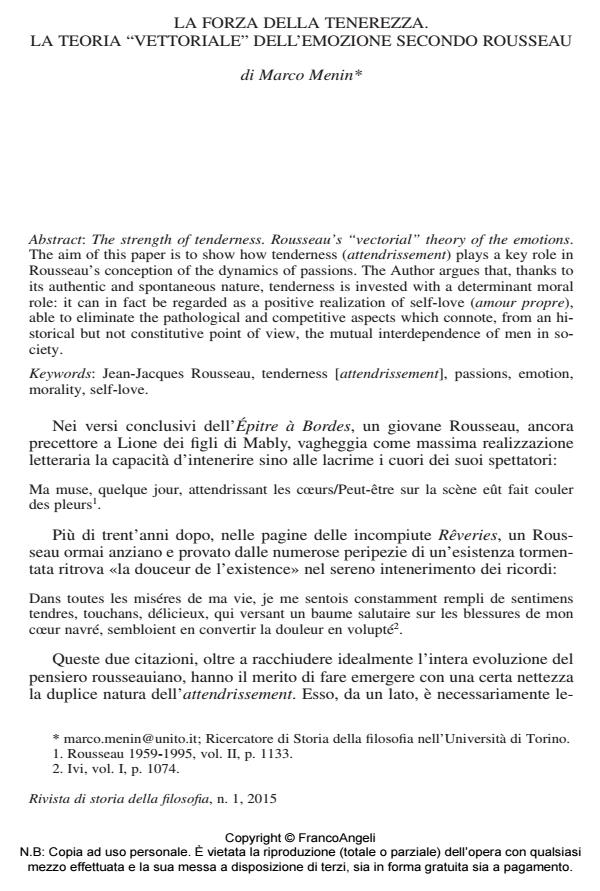The strength of tenderness. Rousseau’s "vectorial" theory of the emotions
Journal title RIVISTA DI STORIA DELLA FILOSOFIA
Author/s Marco Menin
Publishing Year 2015 Issue 2015/1
Language Italian Pages 15 P. 5-19 File size 566 KB
DOI 10.3280/SF2015-001002
DOI is like a bar code for intellectual property: to have more infomation
click here
Below, you can see the article first page
If you want to buy this article in PDF format, you can do it, following the instructions to buy download credits

FrancoAngeli is member of Publishers International Linking Association, Inc (PILA), a not-for-profit association which run the CrossRef service enabling links to and from online scholarly content.
The aim of this paper is to show how tenderness (attendrissement) plays a key role in Rousseau’s conception of the dynamics of passions. The Author argues that, thanks to its authentic and spontaneous nature, tenderness is invested with a determinant moral role: it can in fact be regarded as a positive realization of self-love (amour propre), able to eliminate the pathological and competitive aspects which connote, from an historical but not constitutive point of view, the mutual interdependence of men in society.
Keywords: Jean-Jacques Rousseau, tenderness [attendrissement], passions, emotion, morality, self-love
Marco Menin, La forza della tenerezza. La teoria "vettoriale" dell’emozione secondo Rousseau in "RIVISTA DI STORIA DELLA FILOSOFIA" 1/2015, pp 5-19, DOI: 10.3280/SF2015-001002